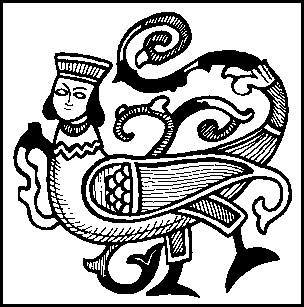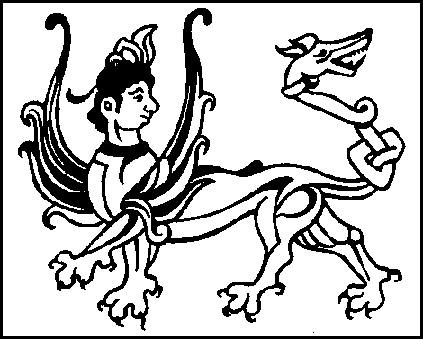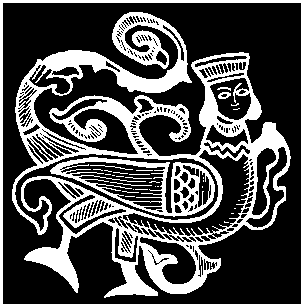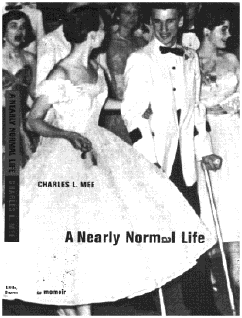The Prophet
The Struggle
For Islam
Mark Huband
(Westview/Perseus)

- The American financial and logistical support --- and the Saudi support that matched it --- was the element that turned a local conflict into the pan-Islamic jihad that the Afghan resistance leaders had declared in November 1979. The call to fight in Afghanistan spread from Morocco to Indonesia. Military success, however, was what turned the trickle of recruits into a flood...The foreign financiers transformed the entire war by providing the weapons that made such success possible.
With this victory --- and with the profound in-group camaraderie that came with it --- the Arab Afghans went on to hone their knowledge of weapons and war techniques: to spread it to the read of the world. (The U S Military manual, the Black Book was translated into Arabic, and became their primer on military and terrorist violence).
- In every Islamic conflict now you will find some Afghan Arabs. In the Philippines, in Kashmir, Tajikistan, Burma, Bosnia, in Africa...The bulk of them went back to their own homes. To Western eyes they became terrorists. In their homes they are still considered heroes. What is bothering the Western politicians is that the Afghan Arabs went from being individuals into being a school of thought.
 And so the chickens, these violent CIA chickens, have come home to roost. With a vengeance. Huband takes us to North Africa, the Sudan, Somalia, Algeria and Egypt to follow these new heroes of Islam, the "Afghan Arabs." If you ever had doubts about those military ninnies in Washington who send out billions of dollars to stir up the broth of world politics (and in the process, create intrigue and terrorism), then this is your book. U. S. military and intelligence sets it in motion, and not long afterwards, come the monsters out of the closet.
And so the chickens, these violent CIA chickens, have come home to roost. With a vengeance. Huband takes us to North Africa, the Sudan, Somalia, Algeria and Egypt to follow these new heroes of Islam, the "Afghan Arabs." If you ever had doubts about those military ninnies in Washington who send out billions of dollars to stir up the broth of world politics (and in the process, create intrigue and terrorism), then this is your book. U. S. military and intelligence sets it in motion, and not long afterwards, come the monsters out of the closet.
Huband knows his Islam, and in less than 200 pages, will give you the willies when you consider the black and poisonous fruits of your tax dollars at work.
False
Witness
Melvin Rader
(University of Washington)
 One of the delicious ironies of this new edition of Mel Rader's book that it is being issued by the University of Washington Press, for it was the University of Washington which was one of the villains in this particular ugly movie. The Regents of the University gave no support whatsoever to the professors who were accused of being communist; indeed, in 1948, the University issued a declaration that the Canwell Committee --- the Washington State Committee investigating college campuses --- should be fully supported, and that the University could in no way condone those who for reason of conscience were unable to help further the search for communists.
One of the delicious ironies of this new edition of Mel Rader's book that it is being issued by the University of Washington Press, for it was the University of Washington which was one of the villains in this particular ugly movie. The Regents of the University gave no support whatsoever to the professors who were accused of being communist; indeed, in 1948, the University issued a declaration that the Canwell Committee --- the Washington State Committee investigating college campuses --- should be fully supported, and that the University could in no way condone those who for reason of conscience were unable to help further the search for communists.Three professors investigated by the Canwell Committee were fired, and three others were put on probation. For years afterwards, the University of Washington suffered grievously for its Benedict Arnold stance, because many of the best teachers from around the United States and the world refused to consider, for a moment, joining the faculty of such a school, run by such blackguards.
Few seem to remember how deeply the anti-Communist battles of the forties and the fifties wracked loyal Americans. In truth, for the better part of a decade, Josef Stalin was responsible for destroying a goodly portion of the Bill of Rights in America. Stalin's expansionist policies after WWII were astonishingly successful in Hungary, Poland, most of Eastern Europe --- along with powerful representation in the democratic governments of Greece, Italy and France. That he seemed to be winning everywhere (as was Mao in China) helped to determine national policies in the United States between 1948 and 1960, dictating --- for example --- the military budget.
As well, he ran our foreign policy, created NATO, SEATO, and the CIA and, internally, helped to oversee the erosion of many of our civil liberties. Although not elected to public office in this country, Stalin along with his allies --- Joseph McCarthy, Martin Dies, Pat McCarren, Francis Walter, and Albert Canwell --- helped to strangle liberty and freedom in the halls of our colleges and universities.
The rights we had so carefully nurtured for two hundred years were obviated in a decade by the Senate Internal Security Sub-Committee, the House Un-American Activities Committee, and the Washington State Joint Legislative Fact-Finding Committee on Un-American Activities. Those who stood in way of these congressional and legislative investigating committees got squashed.
In hearings in 1948, the Canwell Committee singled Melvin Rader out as a "fellow-traveller." They introduced a witness, one George Hewitt, who swore under oath that Rader had attended a summer training camp for Communists in upstate New York in 1938 (or 1939, or 1940). The better part of False Witness tells of Rader's attempt to prove that this was a fabrication, that he had never even been to New York, much less attended a Camp for Communists.
It is, we suppose, a heartening story, but it is a sad one too. Rader was an earnest liberal in the 30's --- supporting such causes as Unionism, anti-fascism, and the anti-Franco forces in Spain. He also detested communism for its apparent need to infiltrate and destroy the institutions of democracy. He was a good man faced with a slippery bunch of people who saw him as the enemy, who told tales to prove that he was indeed, a card-carrying "fellow-traveller." (Fellow traveller --- along with "5th Amendment Communist" --- were phrases used to snag people who had not joined the party, but seemed to agree with the principles that the party espoused).
While I lived in Seattle, I was introduced to one of the professors who did not fight back. He had been a respected teacher of English literature, but was sacked by the University because someone claimed that he was communist. He spent his last years drunk to insensibility in the local university hangout, the Blue Moon Tavern --- a ragged, shabby, friendless old drunk.
It's a tale out of Greek tragedy --- where the forces of good are pilloried by a brutishness that doesn't see that in the process of saving a grace, one can destroy it. Those who want to study the history of the anti-communist movement in the United States would do well to read this one.
Normal Life
A Memoir
Charles L. Mee
(Little, Brown)

A Nearly Normal Life chronicles the life of historian and playwright Charles L. Mee. In 1953 he woke up in the hospital, unable to move. What follows is an account of his partial recovery from polio, and his subsequent life as writer. His story is sometimes uplifting, sometimes depressing, but essentially your typical beat-the-odds story. Over the years, Mee fell into depressions, drank excessively, played around with drugs. The result:
- three failed marriages, a passionate life of writing history books that finally seemed pointless in their pretense...
The idea of the normal, and of its desirability, had been so deeply ingrained in me that I couldn't simply drop it...And yet the realness of my deviance from normality was so palpable, so present in my body every day, that I couldn't deny it. I ran toward normality, and at the same time away from it, trying to pass for normal, and feeling it to be a lie. In short, I had become a politician...
How does Mee deal with the world now? "All this thinking about recovery and about the self --- this obsessive concern with how I was doing --- was itself disabling," he says. Even now, he tells us, he looks down and can't believe that he is using crutches. As the artful and wise disabled writer Hugh Gallagher says there is always a part of us that will try, even now, to jump out of the chair to reach a book lodged up on the top shelf.
Mee tells us of his transformation from being an active, sports-loving fourteen-year-old to his own form of addiction --- an addict of the mind and the imagination:
- I fled into my own mind, and I discovered there the deep pleasures of solitude, the pleasures hermits must know, a world cut free of all physical limitation, a world where, in the imagination, anything is possible, a world where all bodies are equal...
At the same time, there were those who didn't know what the hell they were doing --- who were actually harmful to our psyches and our bodies. Fifty years ago, the surgical transplants so commonly inflicted on polios to move working muscles around to other parts of the body were, unfortunately, and in many cases, less than successful. One transplant done on Mee was performed by Dr. Wally Blount of Milwaukee, who, Mee claims, was a heroin addict --- immensely respected, but, in truth, destructive to the lives and hopes of his patients.
However, there comes a point in A Nearly Normal Life where Mee lets us down. It has to do with pain --- the rage and pain at what has befallen us. It is the howling animal in us that we try to keep hidden, a cruel and reasonless beast that even now tries to escape. We get hints of it from Mee --- his "three failed marriages," the addictions that took him over from time to time. But we never get to smell it, or feel it, or taste it. It's a beast that hides in the cellar. It overflows with self-pity, pissed-offedness at the fate that came out of a black nowhere to steamroller us into loss-of-body.
Mee's favorite writer on polio is, apparently, Leonard Kriegel, who has published several books about what we should charitably call Disability and the Logical Mind. The problem with Kriegel (and possibly with Mee) is that something is missing here. Both are competent writers --- reporters, really. Both know how to use words. Both can convey the facts. What they don't convey --- and more's the pity --- is the despair that can descend on us with such a terrible suddenness. The psychotherapist Louis Menanda wrote that Depression is not a problem. It's a weather pattern. Under its cloud, everything else is a problem. When we carry an intractable disease --- cancer, polio, brain tumor, one that steals our bodies from us --- even the most buoyantly hopeful of us must turn dark; sad, sad, sad.
This very darkness, it seems to me, is finessed by writers like Mee and Kreigel --- and, as well, the East Coast Agony School of CripWriters (Nancy Mairs, Andre Dubois.) They are all reporters, wandering around their landscape of despair and terror, never noticing this despair and terror; using very careful words as blinders, unwilling to get the horror --- the Conradian horror --- down on the page.
There are many of us who have chosen (however fearfully) to go one step further. To hang over the side of the cliff, to stare into the abyss. At times like that, we are filled with that Doestevyskian despair at the singular waste of it. This vision must, by definition, make raging monsters of us. Kriegel, Mairs, Dubois, et al, seem to be claiming that they have overcome this monster-from-within, but for those of us who have been there, their denial adds a further dollop of woe to the heartbreaking truth of it all. They all seem haunted.
Mee edits out this animal howl, the howl that comes over us when we consider what they have stolen from us --- our youth, our youthful joy, our agility, our sweet innocence, our insouciance, our childlike ability (still there, but now in distorted form), to be wild and garish and silly and funny. The chance, now gone, to live as the wind: a wild, fresh-from-the-fields child, filled with delight in pure living.
The boy (or girl) in us is now cauterized . That process has left an aching scar that, at times, must rend the soul of us.
How sad that Mee is not yet able to see it.